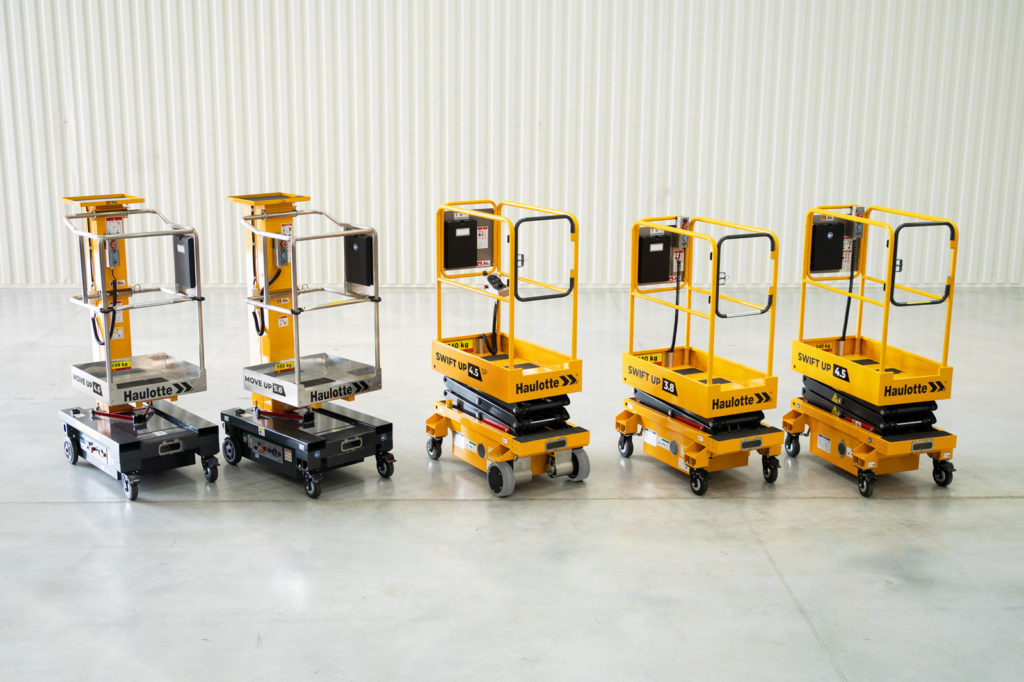Compact and lightweight, Low-Level Access platforms are quick to set up and offer a large working platform. Providing increased safety, they minimize the risk of falls and significantly reduce fatigue for operators.
In the construction and maintenance industries, the use of Low-Level Access solutions such as Push Around Verticals (PAVs) and small static vertical machines is becoming increasingly common. These lightweight elevating platforms provide a practical and safe alternative to traditional methods like ladders and scaffolding. Here are some tips and best practices to fully leverage these versatile pieces of equipment while ensuring safety and efficiency on the job site.
Versatile applications across various sectors
This type of aerial work platform is ideal for use in confined spaces, with restricted access, for applications up to 6 meters high and with sensitive floors.
With these key benefits in mind, they are ideally suited to a wide range of professional applications.
- Electrical installation and maintenance: Electricians commonly use these devices for installing and maintaining electrical systems at height.
- HVAC work: Contractors specializing in heating, ventilation, and air conditioning find these platforms ideal for accessing HVAC systems. Applying insulation materials to pipes, ducts, and equipment in industrial settings. Accessing elevated piping systems for insulation installation and maintenance.
- Interior renovation and fit-out: In renovation projects, these machines make it easy to access ceilings and heights for installing suspended structures, signage, or cabling systems.
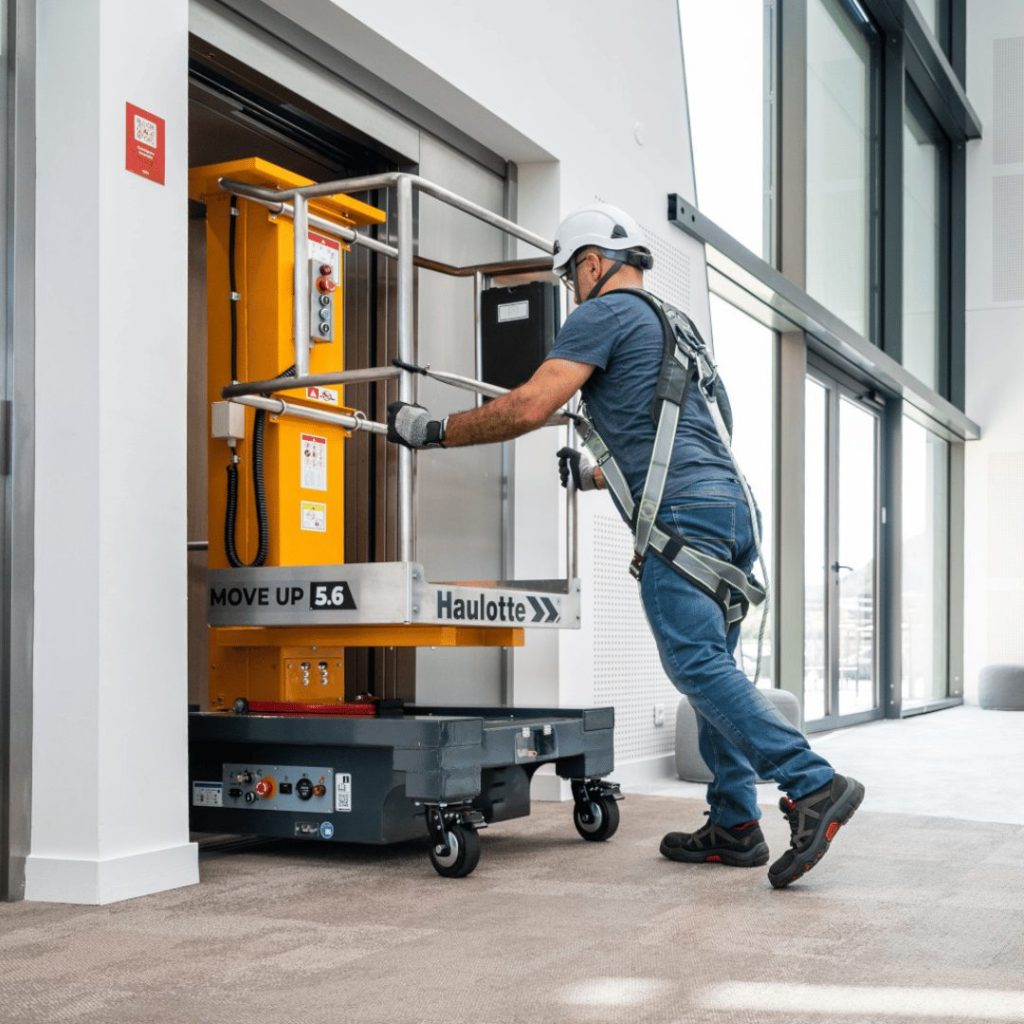
3 main advantages of using PAV lifts:
1 / Ideal for working in confined spaces
- Their compact size (max. width 75 cm) makes it easy to navigate through confined spaces, such as narrow store aisles, data centers, open-plan offices, or warehouses, without damaging the working environment.
- Their narrow turning radius allows tight maneuvers without difficulty. They easily fit into elevators and pass comfortably through a standard single doorway.
- Haulotte’s Low-Level Access range is designed to work in low floor-load areas such as hotels, gymnasiums, and theatres. Lightweight and equipped with non-marking wheels, they are perfectly adapted to sensitive floors, such as carpet, wood floor, marble, tiles…
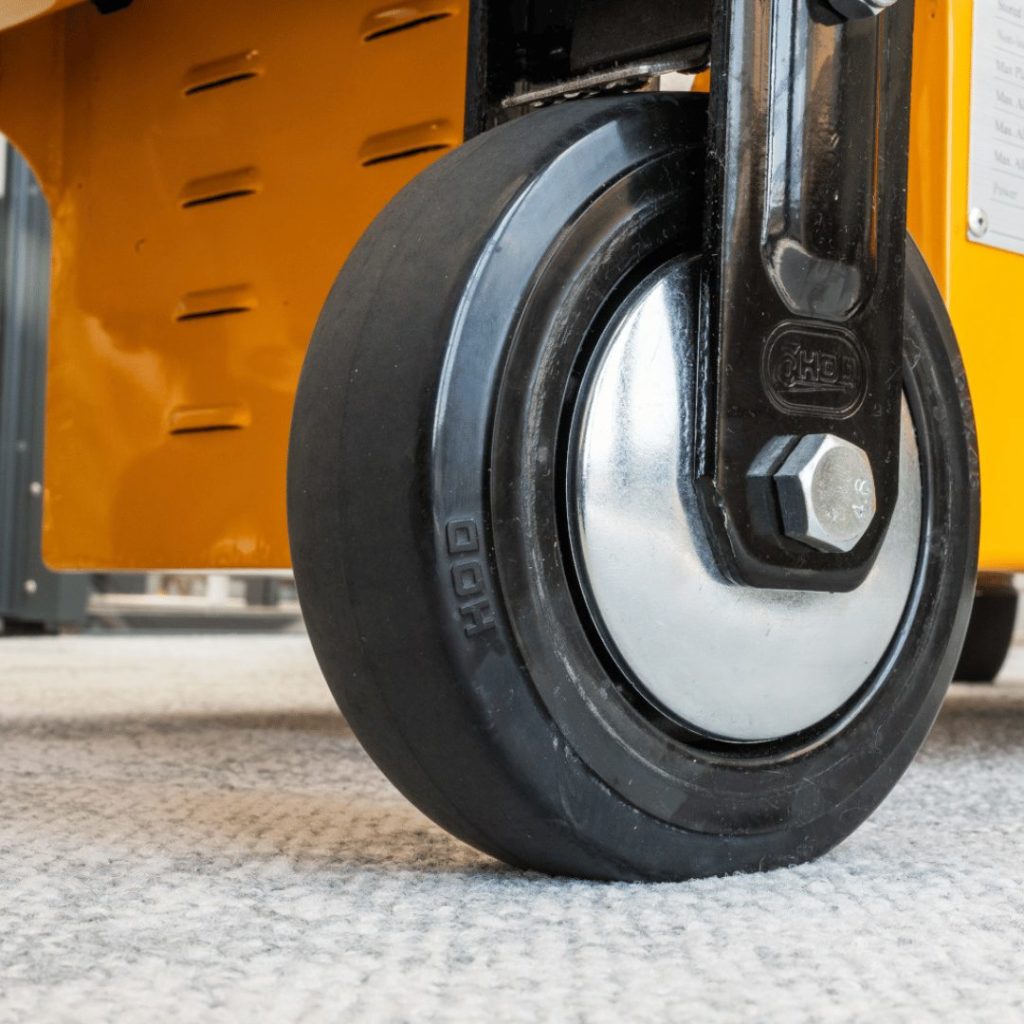
2 / Enhance efficiency and productivity
- Ease of transportation: These machines are compact and lightweight, making them easy to transport to job sites, thus reducing setup times. PAVs are often ready for use within seconds, unlike scaffolding, which requires assembly.
- Increased mobility: Some small static vertical machines can be easily repositioned even when elevated, allowing quick transitions between tasks without needing to lower the platform.
- They require no assembly/disassembly time compared to traditional forms of access and enable users to quickly reach the work area. Self-propelled models can move while raised, allowing quicker movement to the next task.
- Its outstanding stability allows a 360˚ range of motion. Users can work confidently using both hands, unlike ladders for which 3 points of contact are necessary to work safely, leaving only one free hand to perform a task…
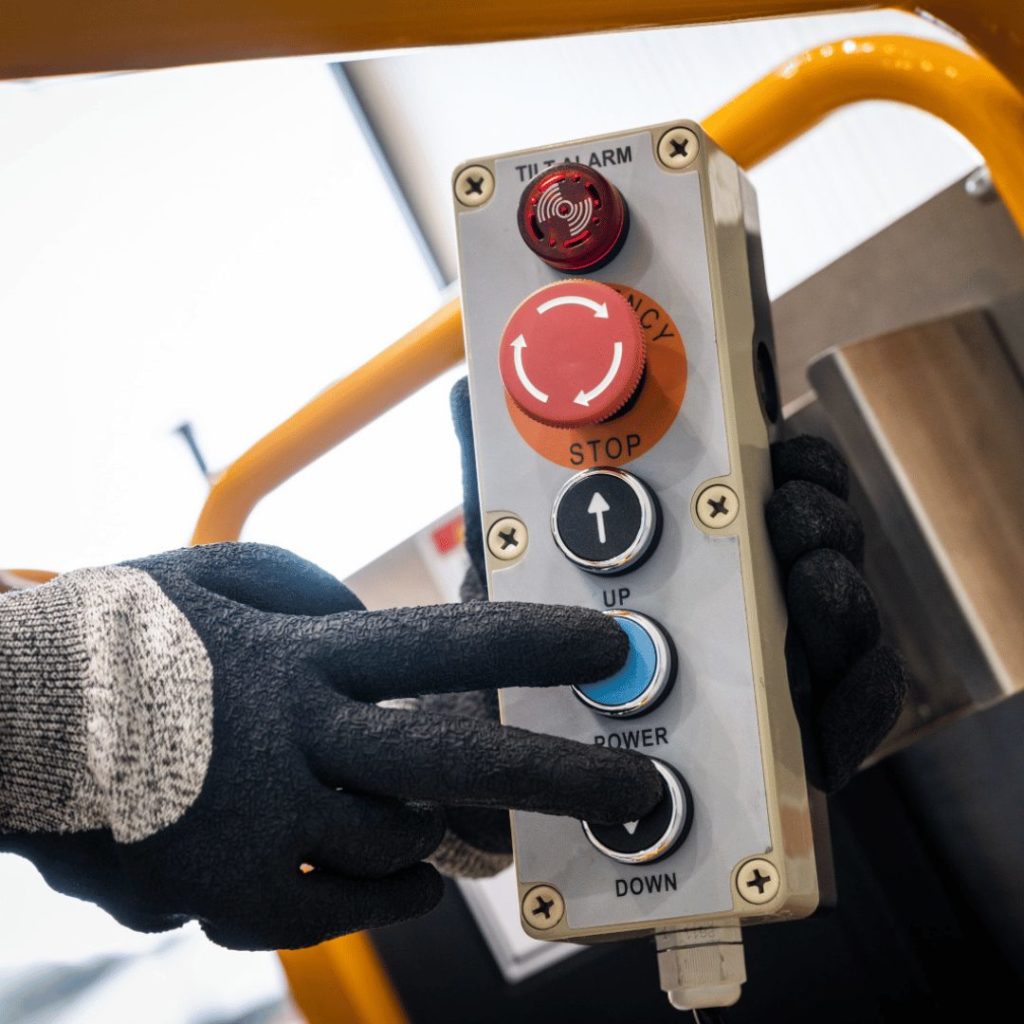
3 / Ergonomic and safer alternative to scaffolding and scale
- Gone are the injuries and falls involving ladders and scaffolds! Offering a stable platform with a guardrail, Low-Level Access platforms reduce the risk of accidents, which are sometimes costly.
- Low-Level Access platforms significantly improve the working conditions and well-being of operators. They eliminate fatigue associated with repeated climbs and descents, while helping to lower the risk of musculoskeletal disorders. It also ensures that the operator is always working at the right height.
- Spacious platforms: The platforms provide ample space for tools and materials, allowing operators to keep necessary items close at hand, which reduces downtime.
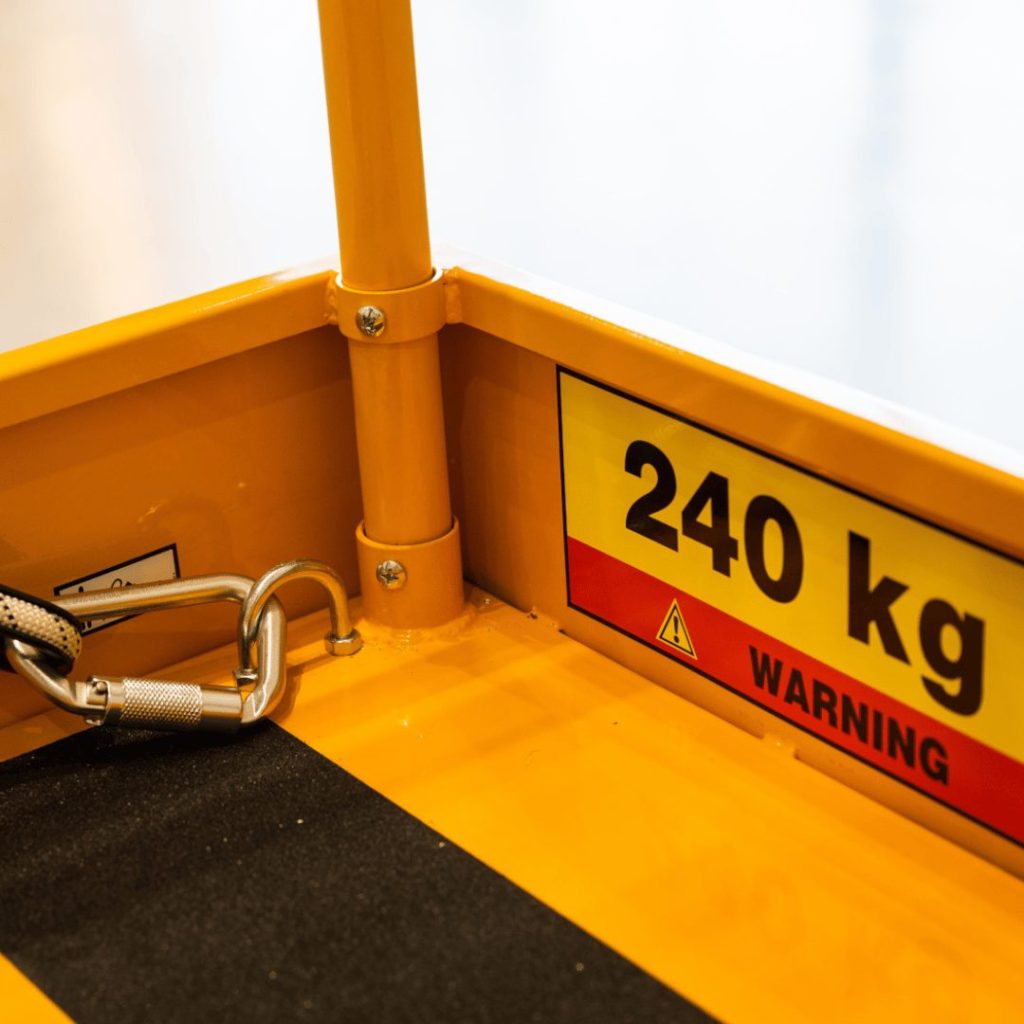
In conclusion, the use of Low Level Access (PAV) and small static vertical machines offers numerous benefits, including enhanced safety, efficiency, and comfort. By following these tips and best practices, professionals can optimize their workflow and ensure a safe working environment. These versatile tools are invaluable for a wide range of tasks, from maintenance and installation to light construction work.
Want to read more articles about PAV & Low Level Access:
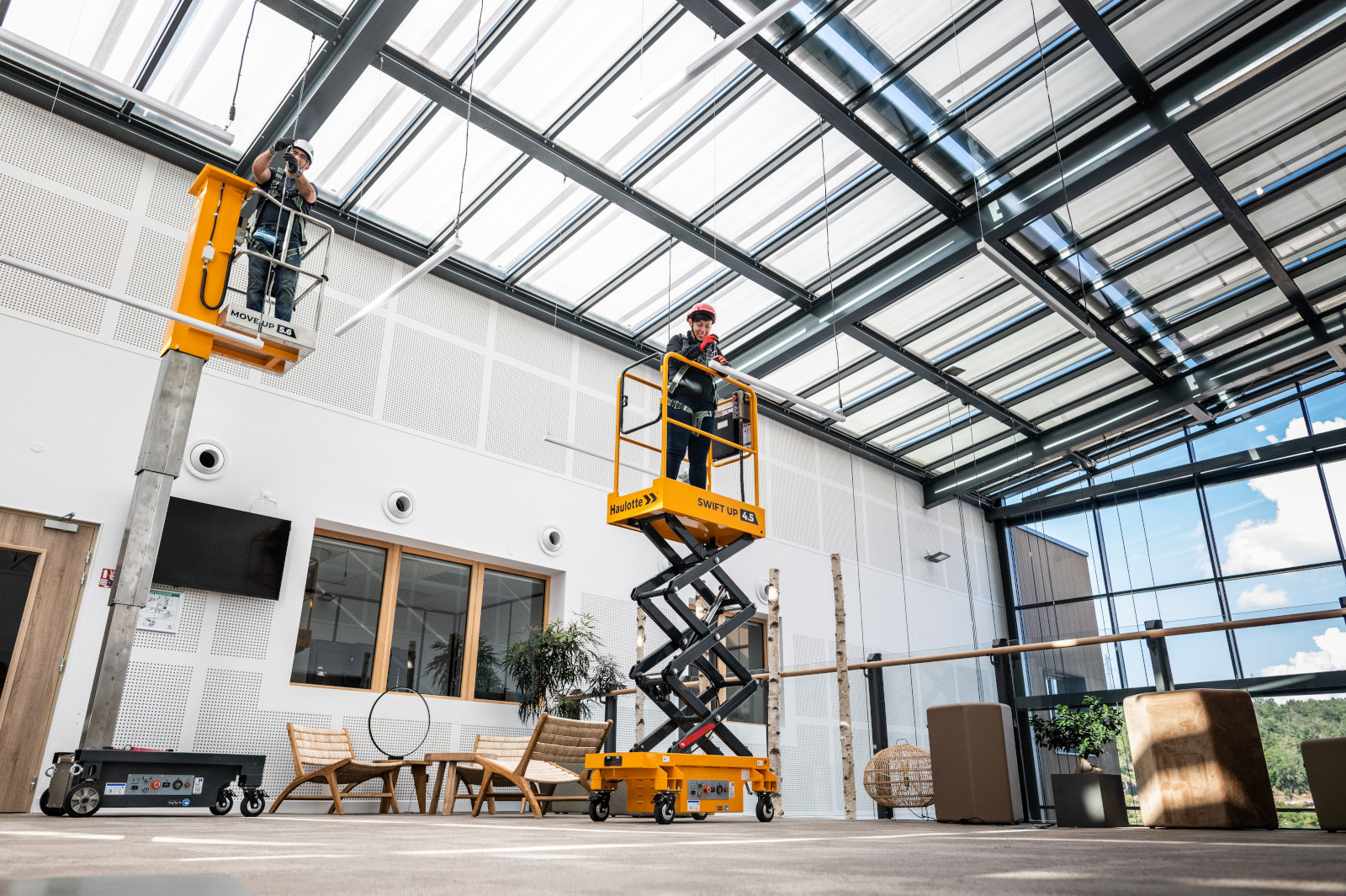
Maintenance tips and advices for Low-Level Access elevating platforms
Carry out these 3 levels of maintenance for optimal operation: daily, monthly and annual
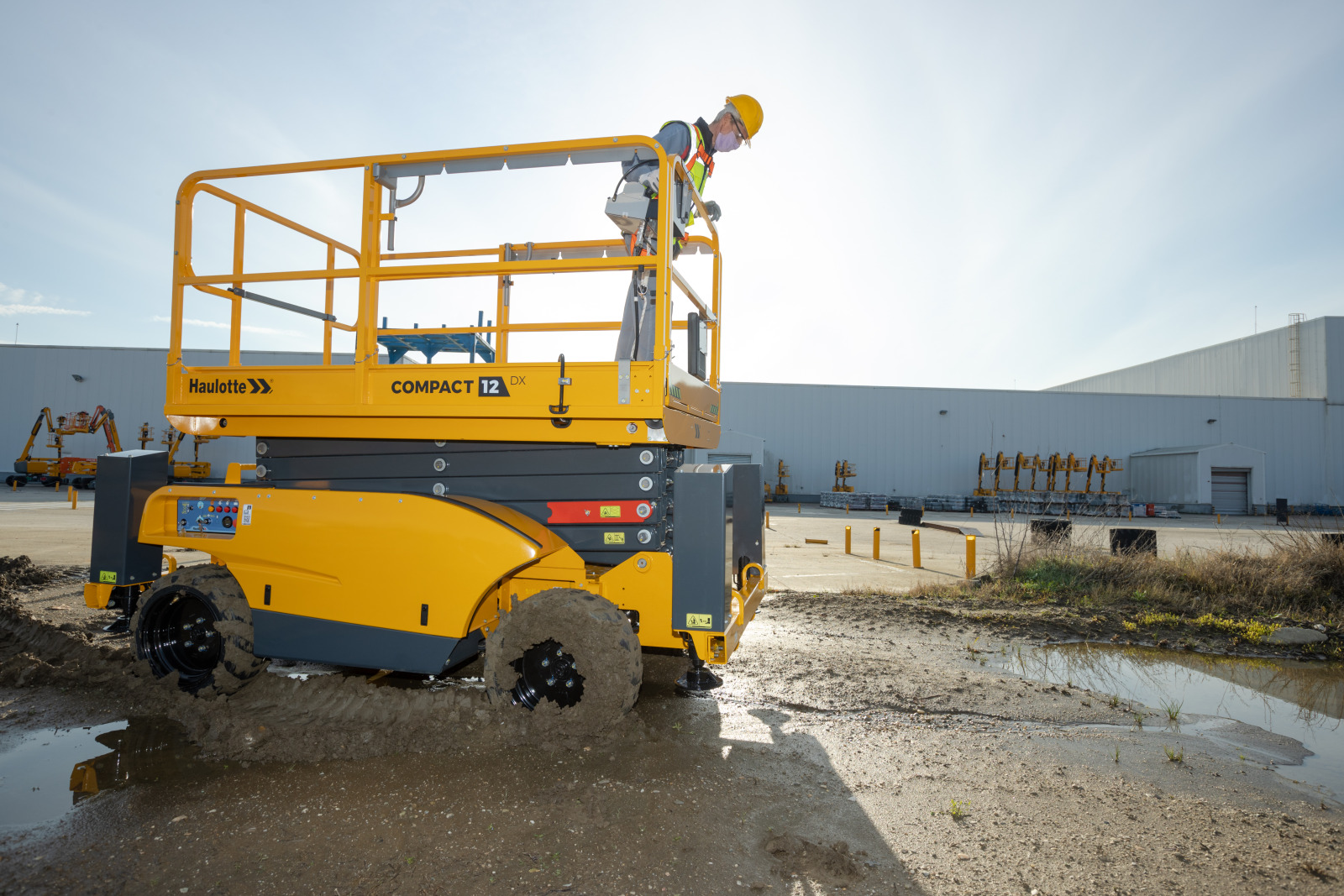
Boom lift permit: all you need to
know
Mobile elevating work platform must only be handled by trained an authorized persons
